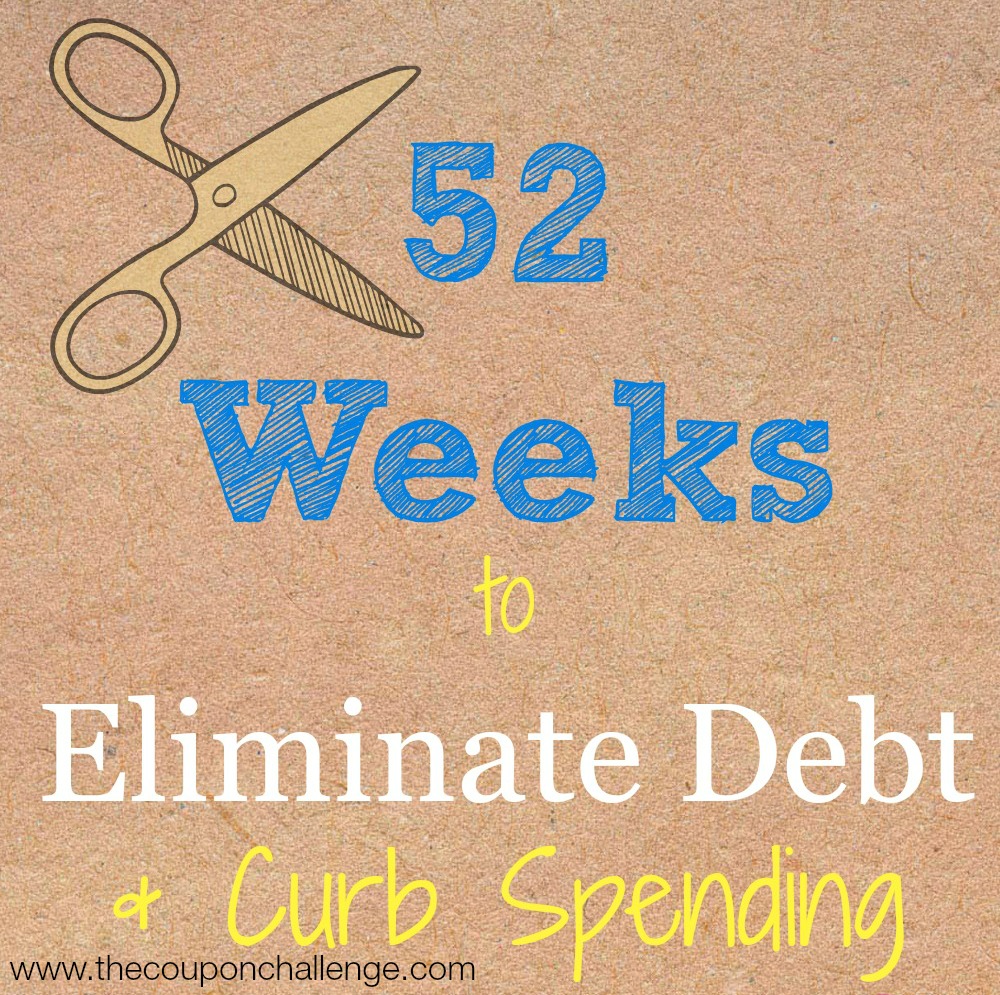You are reading Week 6 of 52 Weeks to Eliminate Debt & Curb Spending. Please read the overview here to learn more about the series & get your FREE financial planner. If you just joined us, please start with week 1.
As difficult as it may be, if you are working to get rid of debt, you must Change The Way You View Money. Our upbringing, peers and life experiences all shape who we are and how we view money. As you look honestly at your current debt, you must also accept that your view of money could be the problem.
1. Accept that your income is not guaranteed. While most of us have a secure job that we feel good about, reality is that no job is guaranteed forever. We have to look at our paycheck as not just income for the moment, but a plan for the future as well. Begin looking at each paycheck as an opportunity to plan for your future as well as pay your current bills. Don’t fall victim to the, “Well, I’ll get paid next week” trap of spending money you don’t have on hand. Remember that not all income is guaranteed to continue.
2. Don’t fall into the trap of believing a credit line is “free money”. While we realistically know better, it can be an easy trap to just use the credit card. A credit line is not your money. It is money that belongs to someone else and should always be treated as such. Don’t let yourself think of it as your money. Instead look at it as an open line of credit for emergency use that must be paid back as soon as possible.
3. Savings accounts are not an option. This one is huge! It is hard to make happen. We get that, but we still won’t back down on the fact that it just isn’t an option. Give up one stop at Starbucks this week and make room in your budget for a $5 weekly savings. It may seem insignificant now, but at the end of the year $260 is a good start that could bail you out of an emergency. This is the purpose of savings accounts–to help when an emergency arises.
4. Stop viewing money as a status symbol. Don’t think of yourself in terms of how much money you have, what brand of clothes you wear or how many more square feet your house is compared to your neighbors. If you are emotional about your money, it will control you. It will dictate your mood and could cause you to make devastating money mistakes trying to keep up your “image.”
Remove money from it’s pedestal. It won’t bring you happiness. No matter how much money you have, it will never be enough. You need to control your money. Don’t let your money (or lack there of) control you.
Have you heard of the saying “Money doesn’t buy happiness”? Do you find yourself shopping and spending money to make yourself happy? What void you are trying to fill with stuff? I recently read a book that focuses on the steps to finding The Good Life. Part of the book discusses the author’s need to shop. She thought that one more lamp or pillow or dress would finally make her happy.
5. Acknowledge your financial mistakes. Dig deep into the mistakes you’ve made and take responsibility. Don’t complain or blame them away. Learn from these mistakes, so they don’t happen again.
Yes, your job loss was unexpected. Maybe the company closed down or they eliminated your department. It sucks. Now, what can you do to make sure you don’t make the same mistakes again. Did you not have a savings account to get through the tough times? Were you already living on more than you made?
To truly tackle your debt, you really have to change the way you view money. Focus on the fact that money is a resource to be treated with care. Stop trying to keep up with the Joneses, take control of your money and learn from your mistakes.
Week 6 Challenge:
What would happen if you lost your job tomorrow? Are you prepared? Do you have a savings account? Do you use your credit card for all purchases then can’t pay it off at the end of the money? Do you need money and nice things to feel good about yourself? Do you learn from your mistakes?
Take a look at yourself and see how you can begin the journey to change the way you view money. It’s not easy to open your eyes to change, but it can have a lasting impact on your future.
Disclosure: I am not a financial adviser nor do I have formal financial training. All articles are for informational purposes only and should not be interpreted as financial advice or consultation. Please consult your account and/or financial adviser before making changes to your finances. All situations are different, so please consult a professional to determine your individual needs.



[…] Plan Week 4: What Debt Should We Pay Off First? Week 5: Finding Income When you Have None Week 6: Change the way you view money Week […]